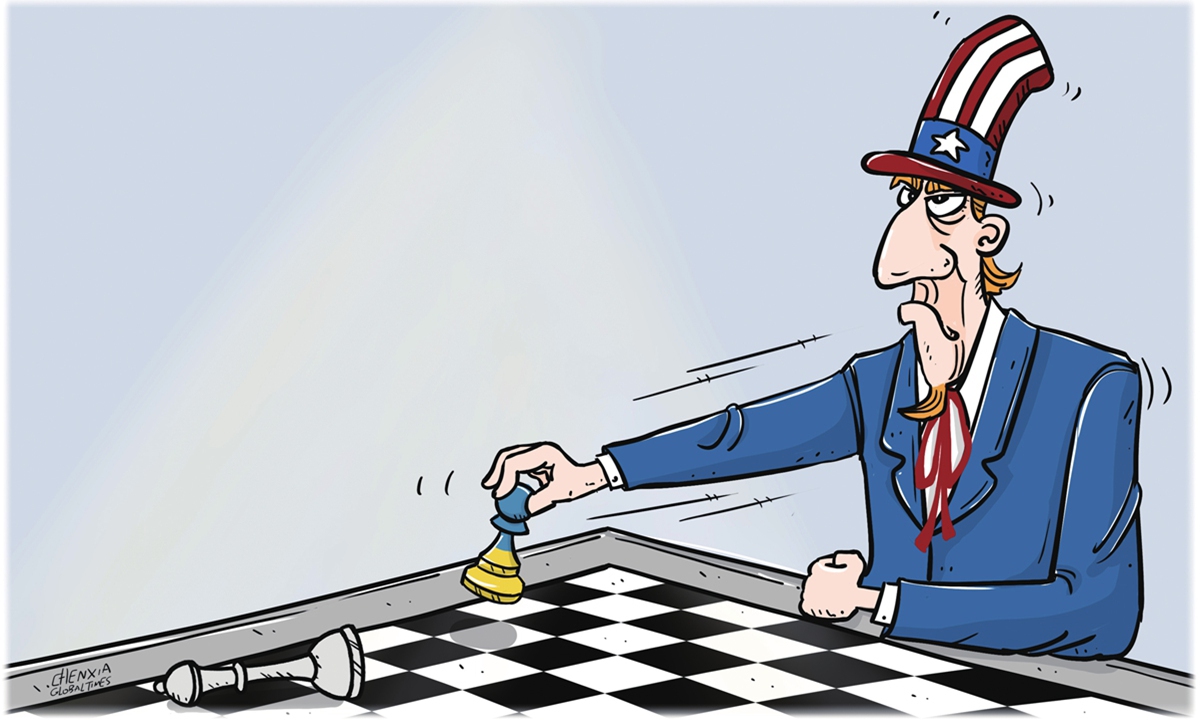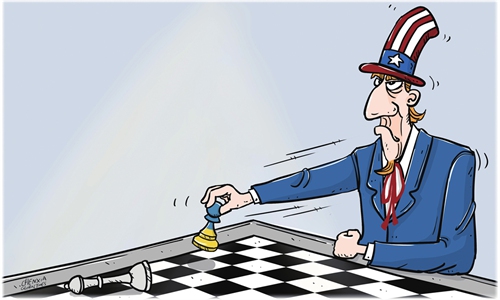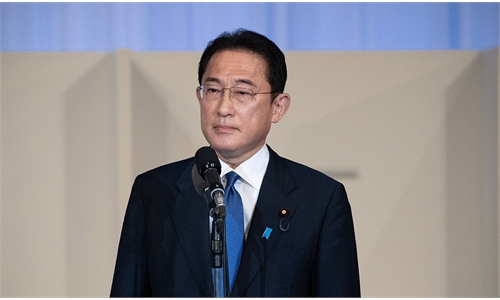
US,Ukraine. Illustration: Chen Xia/GT
If you were to view the war in Ukraine only through the lens of much of the Western media, you would think that Russia was fighting the rest of the world.You would think that every nation on Earth is sending humanitarian aid, or arms, or money in response to President Volodymyr Zelensky's pleas for assistance.
That is certainly the impression the US and its allies wish to give - that the world is in united against Russia. But while it is true that a formidable array of countries is standing shoulder-to-shoulder with the US, whether by supplying lethal weaponry or just giving tacit diplomatic backing, the truth is that most countries are not involved. They have neither sent aid, nor imposed sanctions. It seems that most of the world - or at least a significant proportion - is not actually with the US or the countries of Europe.
India has been the target of a wave of diplomatic activity and visits in recent weeks. There was a meeting between Germany's foreign affairs adviser and India's foreign secretary adviser and the Indian external affairs minister, after which the Germans pledged not to "preach to India" about its Ukraine stance. A month before British PM Boris Johnson's trip, there was a virtual summit between the EU and India, which European diplomat described as a "dialogue of the deaf."
This was followed last month by a visit by the president of the European Commission, Ursula von der Leyen, to New Delhi where she met with Modi. Within days of that, the Indian prime minister set off for a three-capital tour of Germany, Denmark and France. Officials from the West have followed a softly-softly approach - holding back from demanding that Modi moves from his neutral stance to turning on Russia - but it is a continuous, unrelenting one. It is a tightrope for Modi to walk, but so far India has resisted.
With direct military intervention by America, Britain and the European Union seen as unthinkable at this stage, economic warfare is one of the limited ways in the West can respond. There are many prepared to stand up and be counted as their allies, albeit rather predictably. Japan, Canada, New Zealand, Australia and Switzerland are the most significant among the international community to join the financial charge.
But others like Pakistan, Brazil, Mexico, Argentina, Israel, Vietnam, Cuba, Bolivia and South Africa have steadfastly refused to join the sanctions regime or support the same UN resolution on which India abstained. Mexico did vote in favor of the resolution but shortly afterwards President Andres Manuel Lopez Obrador announced: "We want to have good relations with all the governments in the world."
Countries which have traditionally taken a non-aligned approach to foreign policy have stayed away from the US campaign to isolate Russia economically. Most countries in South America, Africa and Asia are standing on the sidelines. That's quite a sizeable piece of the planet.
The lack of support has been reported, though not widely. But it is important that that dissent is more widely reported, because that way questions might start being asked which aren't being loudly asked at the moment, such as "Is pouring lethal weaponry into Ukraine and swamping Russia with sanctions (always a blunt tool) the best way to bring both sides in the conflict to the negotiating table in a meaningful way which might lead to some form of peace?"
In a UN vote on a US-sponsored resolution to bar Russia from the Human Rights Council, it passed with the backing of 93 nations. That means 82 other nations either voted against or abstained. It was a close call and may suggest that some nations do not see the Russia-Ukraine conflict as having any relevance to them. Some hinted that NATO's eastward expansion toward Russia was the primary cause of the troubles.
The United Arab Emirates (UAE) abstained from the UN vote and declined to condemn the Russian invasion. The Gulf state declared that for outside nations to take sides in a war like that in Ukraine would lead only to an escalation of the fighting. The UAE and other countries from the Middle East are refusing to impose sanctions on Russia.
Israel is another country refusing to take sides overtly, and it has rejected appeals for weapons and intelligence sharing by Ukraine.
If these nations continue to dissent from the prevailing Western attitude, it will become even harder to pretend that this is anything like a united global response. When Boris Johnson left India, he made vague noises praising Modi for having already "intervened" with Vladimir Putin several times over Ukraine.
But support for a cause requires more than a few phone calls from a PM to a president, and perhaps even Johnson himself realized that. Indian Foreign Secretary Harsh Vardhan Shringla said that although the Russia-Ukraine conflict was discussed, there was no pressure applied by the UK: "Prime Minister Johnson shared his perspective on it, Prime Minister Modi shared ours, which is that the Russia-Ukraine war should end immediately."
That may be different from the impression that Johnson, the US and their allies would like to give, but it is probably closer to the truth. How long before they acknowledge the elephant in the room and deal with it?
The author is a journalist and lecturer living in Britain. opinion@globaltimes.com.cn



